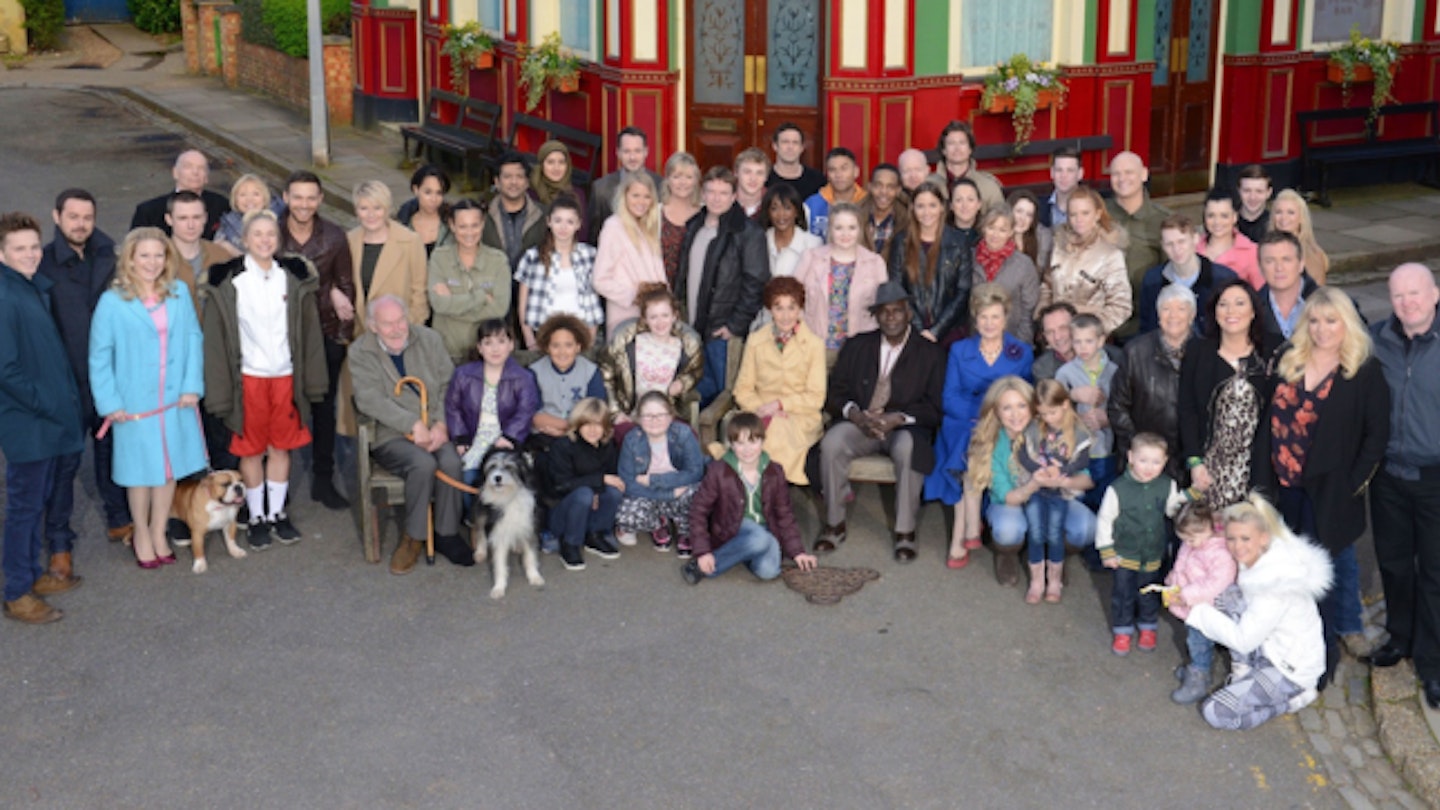Last summer, Diane Coyle - the former acting head of the BBC Trust - said "there are almost twice as many white people living in [EastEnders'] fictional E20 as in real life E17".
She added that the corporation needed to step up its efforts to reflect contemporary Britain.
"As soon as someone starts imposing editorial decisions, we fight back, because we know what we're doing"
BBC director general Tony Hall also announced plans to increase the BBC's diversity, pledging that 15% of on-air staff would be black, Asian, minority or ethnic (BAME) by 2017 - increasing it from the current 10.4%.
However EastEnders boss Dominic firmly disagrees with the idea of diversity quotas, telling the Radio Times defining such characters with plots around ethnicity, sexuality or disability would turn the soap into "a blancmange".
He said firmly: "The day I start box-ticking is the day I leave.
"As soon as someone starts imposing editorial decisions, we fight back, because we know what we're doing."
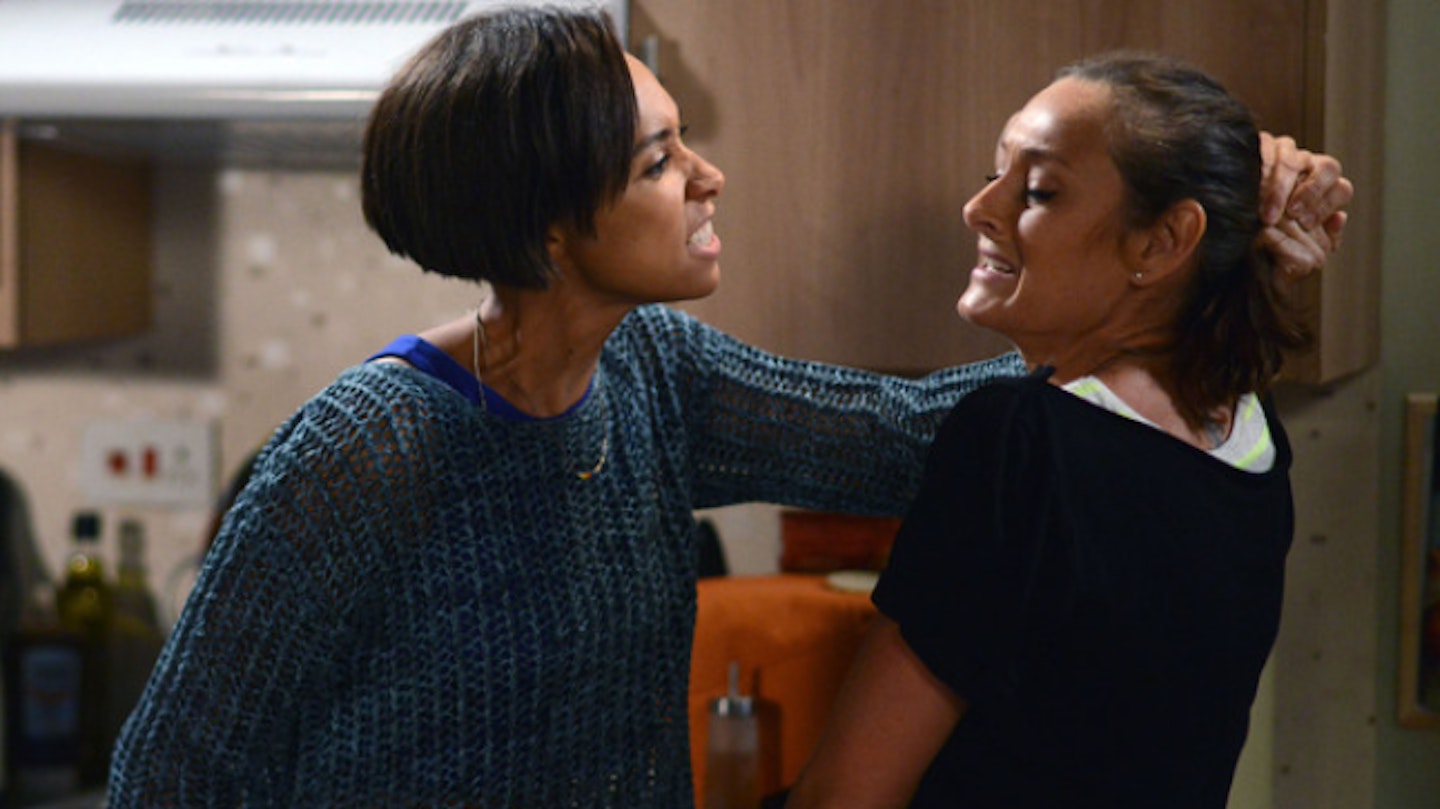
And I agree with him.
EastEnders is one of the most diverse soaps out there - and a lot of that is down to Dominic Treadwell-Collins.
He has overseen the introduction of two characters with disabilities, including market trader Donna Yates, as well as a number of ethnic and minority characters.
Think Tina's domestic abuse struggle with girlfriend Tosh. Think Ben Mitchell's struggle with his sexuality. Think Kat coming to terms with her new status as a burns victim.
Think Denise Fox's struggle with alcoholism. Think Patrick coming to terms with the debilitating affects of his stroke.
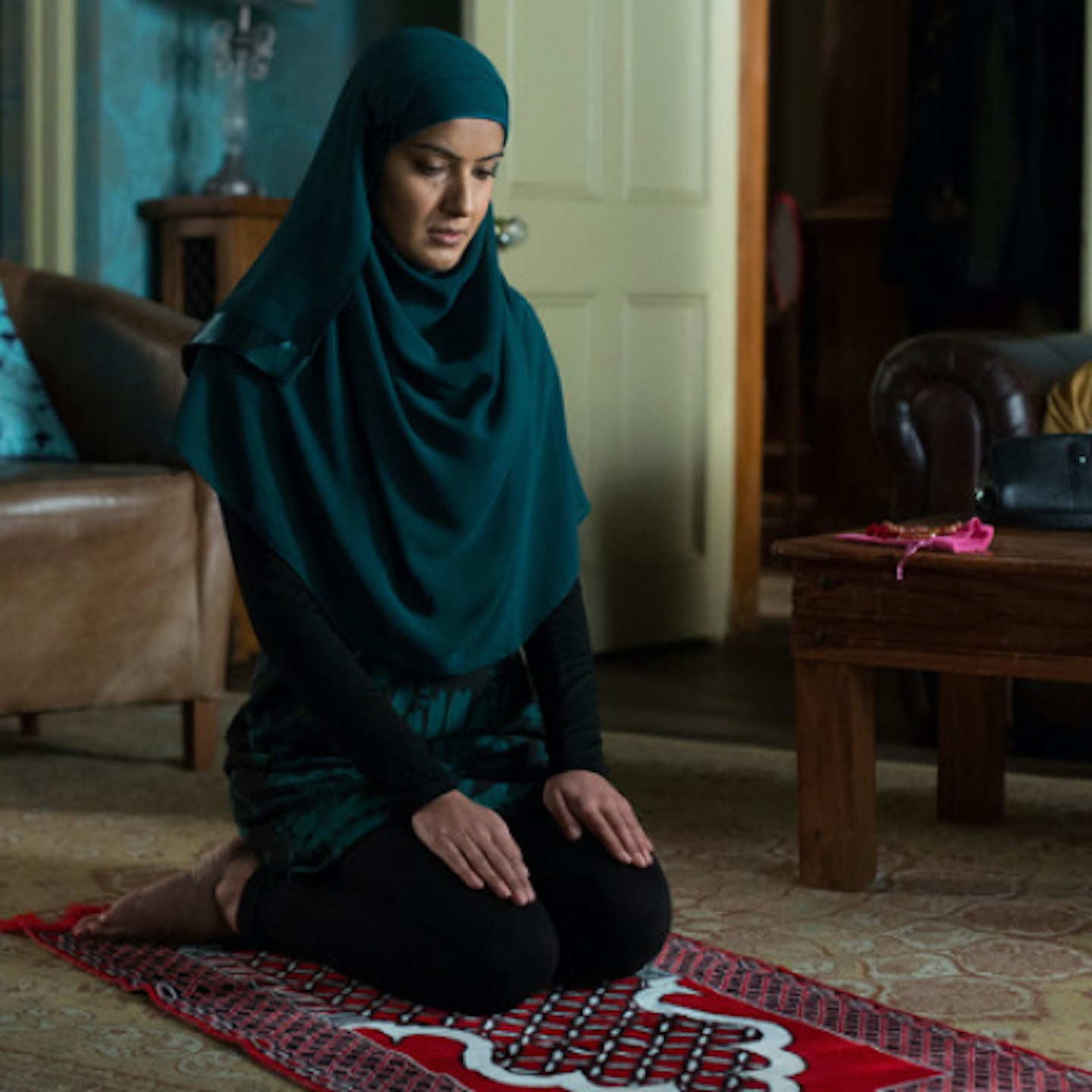
Think Shabnam's struggle to deal with the fact that she has conceived a baby outside of marriage, something which is against her staunch religious beliefs.
Think all the strong female figures, the matriarchs who rule Albert Square and defy gender stereotypes in a very big way.
From Muslim character Syed Masood's struggle with his sexuality, to disabled student Adam blackmailing Lucy Beale for sex, EastEnders challenges our pre-conceptions and breaks down stereotypes.
They do not typecast according to race, to religion, or to gender, and, more importantly, they don't pander to box-ticking.
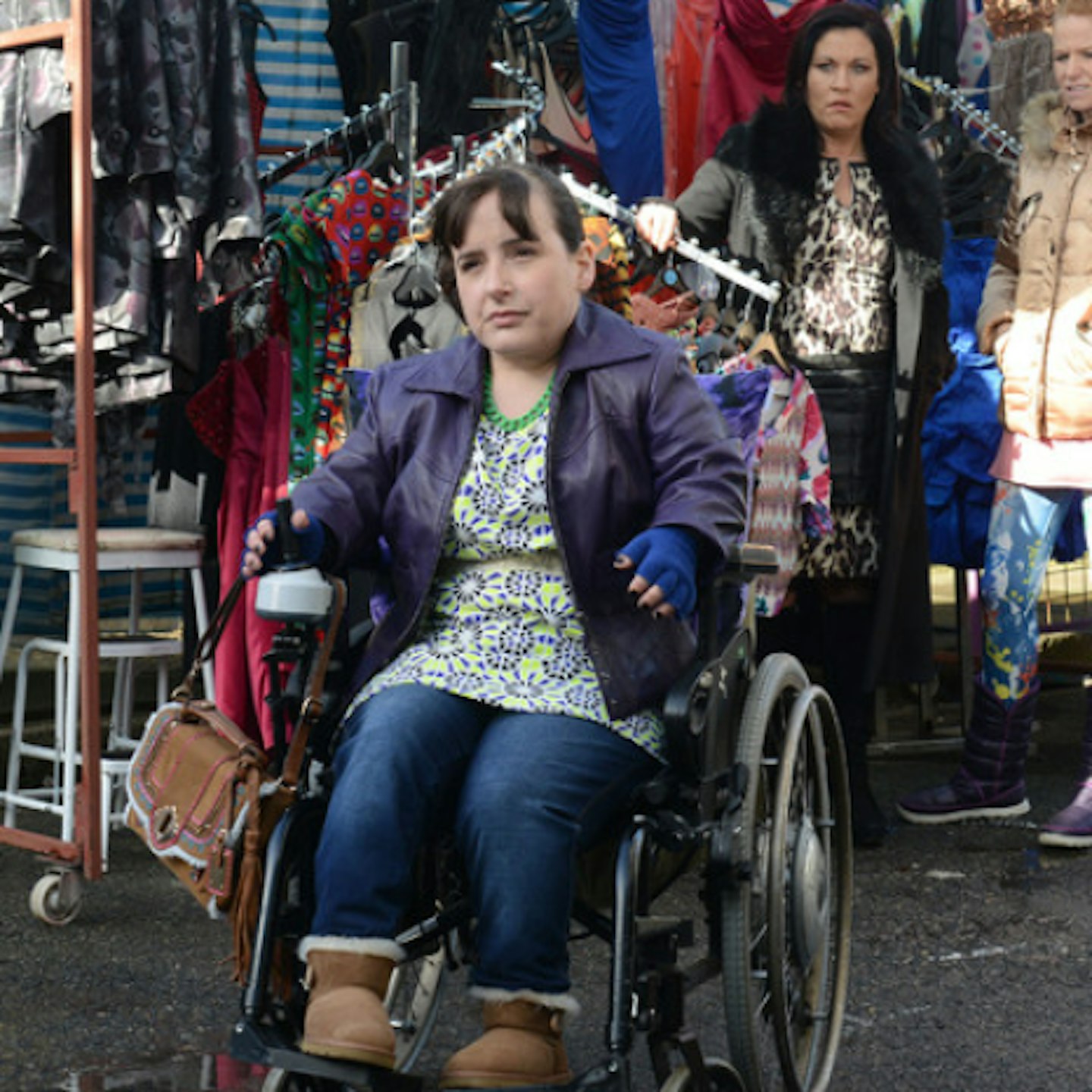
The BBC One soap hires amazingly talented actors and actresses based on their ability, regardless of race, gender, sexual orientation or heritage.
Discrimination - whether it is positive or negative or of any other kind - is wrong.
And, while positive discrimination was created with great intentions, and has helped many people, it also spreads the idea that certain people in the minority are not actually as good as the others are.
By hiring someone purely on the basis of the colour of their skin, or gender, or religious belief, you are suggesting that they wouldn’t be able to advance in the world without positive discrimination.
Richard Blackwood, who recently joined the cast of EastEnders, agrees, insisting: "Your colour, your creed doesn't matter no more.
"If you're good at what you do, they'll use you, it's that simple."
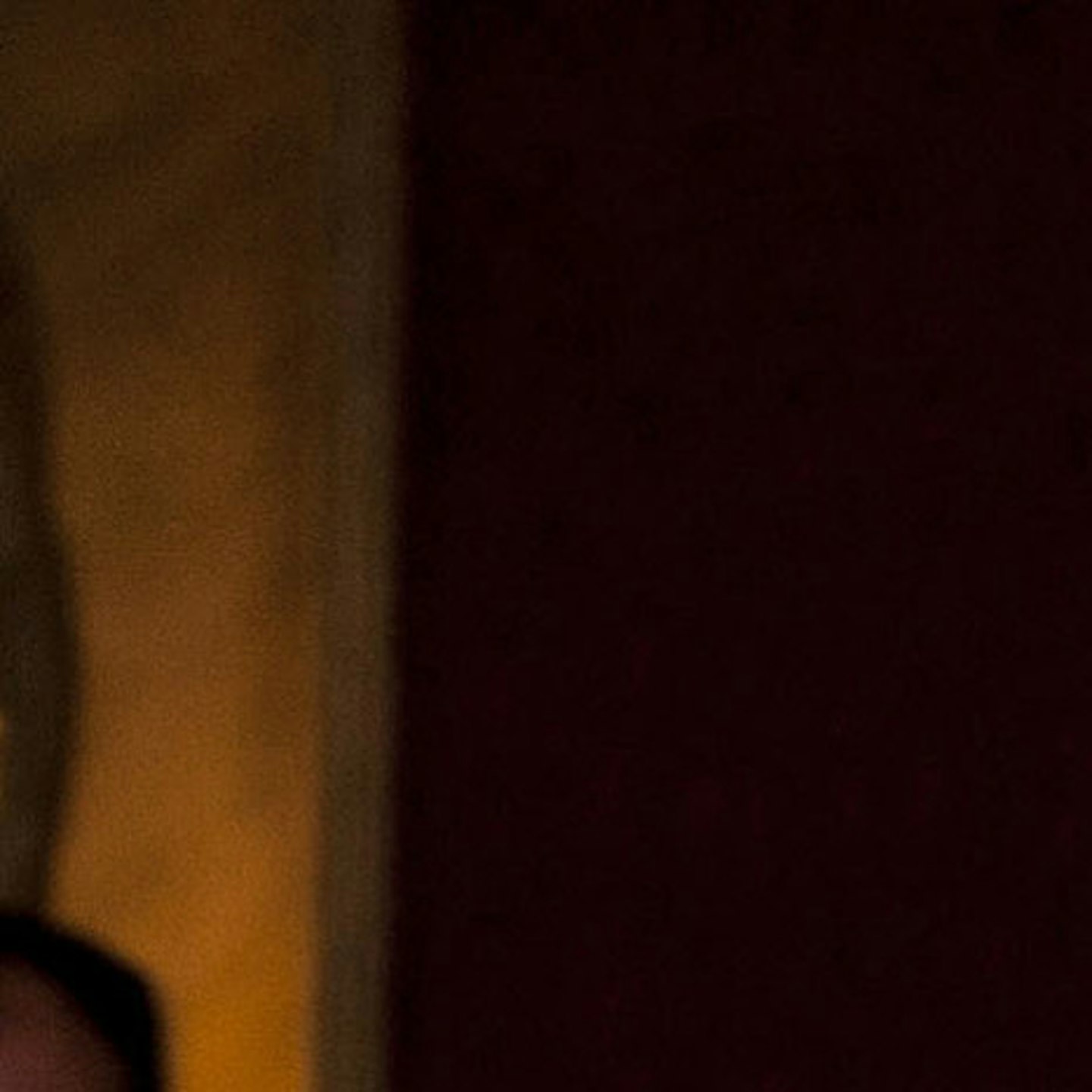
I think EastEnders should continue to write amazing stories for amazing people. Because a soap opera is about people, not statistics and figures. It's not an essay on political correctness; it's an entertaining look at the lives of ordinary folk, with a healthy dose of drama thrown in for good measure.
The minute we stop viewing these characters as people, and start pandering to quotas, is the day soap operas will die.
EastEnders is already leaps and bound ahead of all the other soaps in terms of diversity - and, as they gradually introduce more and more characters, we will see the soap brought forward into the 21st century WITHOUT simply ticking boxes.
Do you agree with our writer? Let us know your thoughts via the comments box below now.
